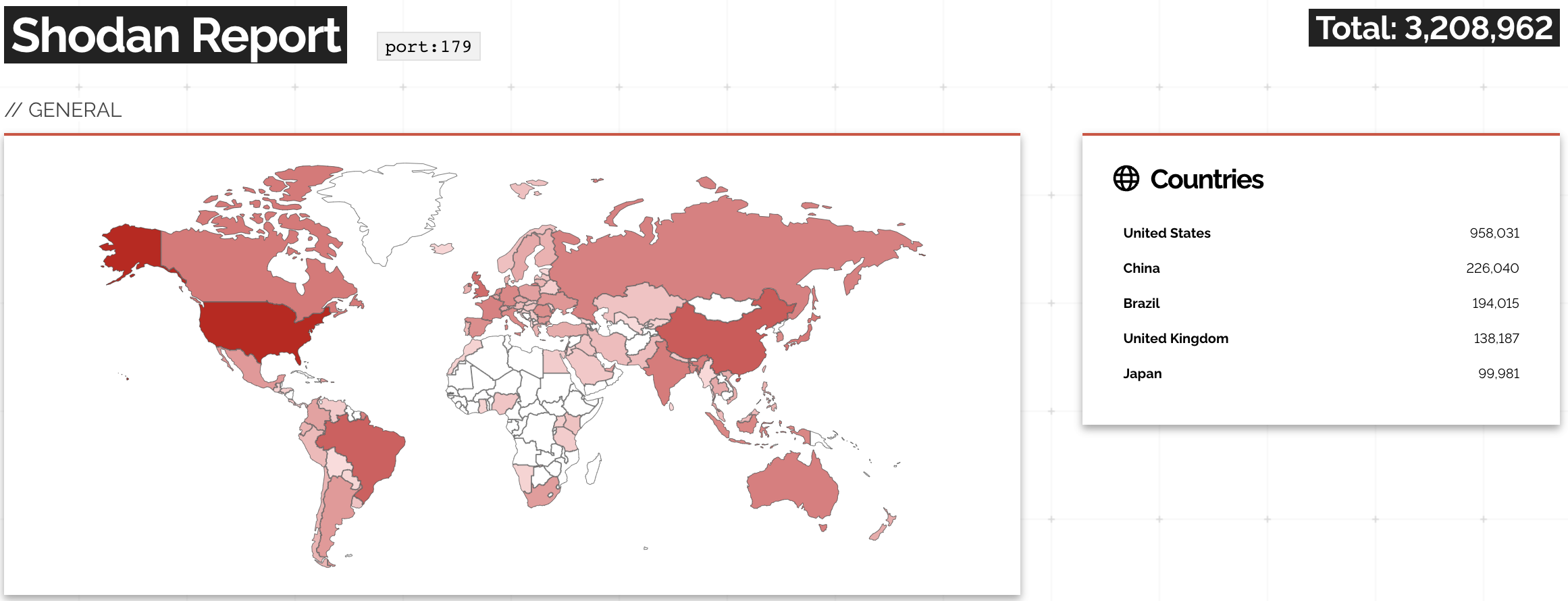How We Measure: DNSSEC Validation
At APNIC Labs we publish a number of measurements of the deployment of various technologies that are being adopted on the Internet. Here we will look at how we measure the adoption of DNSSEC validation.Supermicro Racks Up The System Revenues
There is wracking up the money, and racking up the servers – and Supermicro, which is sometimes an OEM and sometimes an ODM as well as a motherboard and component supplier to those who want to be either, is doing both here at the beginning of its fiscal 2024 year. …
The post Supermicro Racks Up The System Revenues first appeared on The Next Platform.
Supermicro Racks Up The System Revenues was written by Timothy Prickett Morgan at The Next Platform.
D2C219: Building A Multi-Cloud Network With A Cloud-Native Approach (Sponsored)
What if you could have a multi-cloud network that was cloud-native, but you didn’t have to know the nitty-gritty details for each of the clouds? That is, you work with a cloud network interface, and that platform handles the networking–in a cloud-native way–for you. You wouldn’t need to know the nuances of AWS, Azure, and... Read more »D2C219: Building A Multi-Cloud Network With A Cloud-Native Approach (Sponsored)
What if you could have a multi-cloud network that was cloud-native, but you didn’t have to know the nitty-gritty details for each of the clouds? That is, you work with a single cloud network interface, and that platform handles the networking so you can focus on things like improving the velocity of application rollouts, architecture, security, and efficiency? Sponsor Prosimo says its platform can do this. On today's show we look under hood to get details on its multi-cloud networking platform.
The post D2C219: Building A Multi-Cloud Network With A Cloud-Native Approach (Sponsored) appeared first on Packet Pushers.
QoS in the Era of Pervasive Video and Edge Apps
With the explosion of edge computing and more mission-critical applications like video and telecalls, is it time to revisit your network quality of service?The GDPR’s new ally
SPONSORED FEATURE: A convergence of cutting-edge technology, generative AI and advanced server infrastructure has unleashed a wave of innovation in the realm of cyber security. …
The post The GDPR’s new ally first appeared on The Next Platform.
The GDPR’s new ally was written by Martin Courtney at The Next Platform.
Open BGP Daemons: There’s So Many of Them
A while ago, the Networking Notes blog published a link to my “Will Network Devices Reject BGP Sessions from Unknown Sources?” blog post with a hint: use Shodan to find how many BGP routers accept a TCP session from anyone on the Internet.
The results are appalling: you can open a TCP session on port 179 with over 3 million IP addresses.

A report on Shodan opening TCP session to port 179
Open BGP Daemons: There’s So Many of Them
A while ago, the Networking Notes blog published a link to my “Will Network Devices Reject BGP Sessions from Unknown Sources?” blog post with a hint: use Shodan to find how many BGP routers accept a TCP session from anyone on the Internet.
The results are appalling: you can open a TCP session on port 179 with over 3 million IP addresses.

A report on Shodan opening TCP session to port 179
MPLS TE Deadlock
The post MPLS TE Deadlock appeared first on Noction.
Ventana Launches Veyron V2 RISC-V Into The Datacenter
It took the X86 architecture fifteen years get an appreciable share of datacenter compute, and it took the Arm architecture about ten years to get a foothold you could measure. …
The post Ventana Launches Veyron V2 RISC-V Into The Datacenter first appeared on The Next Platform.
Ventana Launches Veyron V2 RISC-V Into The Datacenter was written by Timothy Prickett Morgan at The Next Platform.
AI Is Making Data Cost Too Much

You may recall that I wrote a piece almost six years ago comparing big data to nuclear power. Part of the purpose of that piece was to knock the wind out of the “data is oil” comparisons that were so popular. Today’s landscape is totally different now thanks to the shifts that the IT industry has undergone in the past few years. I now believe that AI is going to cause a massive amount of wealth transfer away from the AI companies and cause startup economics to shift.
Can AI Really Work for Enterprises?
In this episode of Packet Pushers, Greg Ferro and Brad Casemore debate a lot of topics around the future of networking. One of the things that Brad brought up that Greg pointed out is that data being used for AI algorithm training is being stored in the cloud. That massive amount of data is sitting there waiting to be used between training runs and it’s costing some AI startups a fortune in cloud costs.
AI algorithms need to be trained to be useful. When someone uses ChatGPT to write a term paper or ask nonsensical questions you’re using the output of the GPT training run. Continue reading
How Data Center Infrastructures Must Change to Support AI
How are enterprises big and small adapting their data center infrastructure to handle AI workloads?5 use cases for automating your infrastructure with Ansible Automation Platform
Infrastructure automation is an area where systems administrators and IT operations teams can see some of the biggest benefits from automation, including time savings, reducing tedious manual work, and improving the overall health of their systems. In this blog, I've identified the top 5 infrastructure automation use cases for Ansible Automation Platform that you can deploy in your own environment, and I've incorporated new capabilities like Event-Driven Ansible to make managing your infrastructure even easier.
- Provisioning Red Hat Enterprise Linux with Ansible Automation Platform
Before you get started with any automation project, we typically recommend using automation analytics to plan and predict the potential cost savings to help prioritize which automation projects will deliver the biggest time and cost savings.
Then you can use Ansible Automation Platform to create a workflow to build or configure a cloud or datacenter instance for RHEL, while using surveys to gather additional user input to enable further customization to meet any system requirements. You can even introduce an IT service management ticketing option, then review the job success and confirm service availability.
Watch this video to see it in action:
- Managing Configuration and Drift with Ansible Automation Platform
Ongoing Continue reading
Understanding the Role of the Network in Sustainability
Extreme Networks is embracing a multi-pronged sustainability strategy to achieve its environmental objectives for the company itself and its networking solutions.Rapid Progress in BGP Route Origin Validation
In 2022, I was invited to speak about Internet routing security at the DEEP conference in Zadar, Croatia. One of the main messages of the presentation was how slow the progress had been even though we had had all the tools available for at least a decade (RFC 7454 was finally published in 2015, and we started writing it in early 2012).
At about that same time, a small group of network operators started cooperating on improving the security and resilience of global routing, eventually resulting in the MANRS initiative – a great place to get an overview of how many Internet Service Providers care about adopting Internet routing security mechanisms.
Rapid Progress in BGP Route Origin Validation
In 2022, I was invited to speak about Internet routing security at the DEEP conference in Zadar, Croatia. One of the main messages of the presentation was how slow the progress had been even though we had had all the tools available for at least a decade (RFC 7454 was finally published in 2015, and we started writing it in early 2012).
At about that same time, a small group of network operators started cooperating on improving the security and resilience of global routing, eventually resulting in the MANRS initiative – a great place to get an overview of how many Internet Service Providers care about adopting Internet routing security mechanisms.
